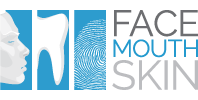All Treatments
–
Face
–
Mouth
–
Skin
–
Cosmetics
 "I would like to thank you very much for making, not the most pleasant experience I have had, into a very bearable one."
"I would like to thank you very much for making, not the most pleasant experience I have had, into a very bearable one."
Wisdom tooth removal
Greg is very experienced in the removal of wisdom teeth and newer alternative treatments such as coronectomy. The NHS and many insurance companies use N.I.C.E. guidelines when recommending wisdom teeth removal. In summary this is normally indicated when there are recurrent infections, or tooth decay or cysts have arisen as a result of impacted wisdom teeth.
Potentially cancerous conditions of the mouth
The skin of the mouth (oral mucosa) should be pink and painless. Sometimes the mucosa can change resulting in red, white, or painful areas. It is very important to see a specialist if this occurs, as it may be a sign of serious or potentially cancerous disease, requiring close monitoring or treatment.
Jaw Cysts
The jaws bones are unique in having teeth growing out of them. This process is complex, and occasionally the tissue that produces teeth can grow into cystic cavities in the jaws. These cysts should be removed to prevent infection or weakening of the jaw, and to confirm the diagnosis. This surgery is complicated and should be undertaken by a specialist.
Benign mucosal lumps
The most common small lumps that appear in the mouth are benign polyps or blocked minor salivary glands. Removal for comfort and to confirm the diagnosis is often recommended. A specialist should do this as important nerves and other parts of the salivary glands can easily be damaged.
Removal of tumours of the salivary glands
The salivary glands are composed of three pairs of large glands (parotid, submandibular, and sublingual) and hundreds of small pea sized glands. Any of these glands can develop tumours, which can become apparent as lumps inside of the mouth. Removal in part or completely is often recommended to diagnose the nature of the growth, and the need for any further treatment.
Salivary gland blockage (sialendoscopy)
Greg is a salivary gland specialist and one of only a handful of surgeons in the UK who offer minimally invasive surgery inside the mouth (sialendoscopy) for salivary gland blockages. Pain and swelling behind or below the jaw at mealtimes, which usually subsides a few hours later is a common sign of salivary blockage. Blockages are usually caused by stones or narrowing of the drainage ducts. In many cases sialendoscopy can prevent the need for removal of the gland.
Dry mouth
Dry mouth is can be very uncomfortable, and result in difficulties eating and speaking. There are a large variety of causes of dry mouth, and review by a specialist is recommended to identify the underlying cause and to recommend any treatment necessary.
Sore mouth
Sore mouth can be caused by a wide variety of conditions, and can even occur when the mouth looks healthy. A specialist opinion should be sought to identify any serious underlying condition, and to advise the most effective treatments to relieve the soreness.



